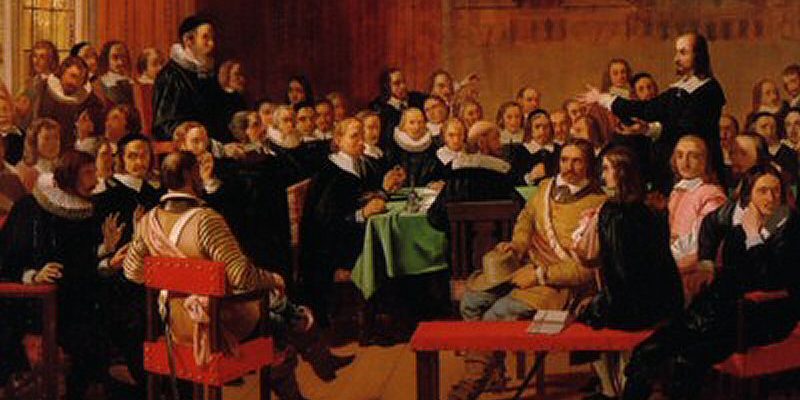
Personal Canon of Creeds and Confessions
By Matthew Barrett –
Luke Stamps wrote a helpful post earlier this week called “Who Reads Must Choose: Developing a Personal Canon of Theologians.” In that post he highlighted the importance of reading the most important theologians in church history and developing a “personal canon” to follow throughout the year. Today I would like to piggy-back off of Luke’s “personal canon of theologians” and also advocate a “personal canon of creeds and confessions” to read throughout the year.
In our own day it never ceases to amaze me how little Christians know about the creeds and confessions handed down to us by our Christian forefathers. In my opinion, we are worse off for our historical ignorance. And be not mistaken: historical ignorance quickly leads to theological ignorance. Christianity that does not learn from the great confessions of the faith will be shallow because it has not absorbed the wisdom available from those doctrinal controversies in ages past. As is often so famously stated, if we do not learn from the past we are doomed to repeat it. Heresy loves to pop its head out among those Christians who have never seen it before. But for those who have drunk deeply from the wells of church history, paying special attention to the confessions of faith designed to guard the church from heresy, it is far easier to recognize heresy for the old man he is.
All this to say, read the creeds and confessions! But you may be asking, well, where do I start? Here is a humble schedule of where you might begin in 2012.
Two qualifiers: First, keep in mind, as a Protestant, you will not agree with all of these. However, it is essential to read those creeds and confessions you do not agree with (or even consider heretical!) in order to understand the formation of Christian orthodoxy. Second, towards the end of the year I have thrown in a couple of contemporary statements as well.
January –The Didache, The Apostles’ Creed, The Athanasian Creed
February – The Nicene Creed (325), The Chalcedonian Creed (451)
March – On the Faith and the Creed (by Augustine; c. 393), The Synod of Orange (529)
April – The Augsburg Confession (1530), The Formula of Concord (1577), The Decrees of the Council of Trent (1545-63)
May – The Belgic Confession (1561), The Heidelberg Catechism (1563), The Second Helvetic Confession (1566)
June – The Thirty-Nine Articles (1571), The Lambeth Articles (1595)
July – The Canons of Dort (1618-1619)
August – The Westminster Confession of Faith (1647), The Savoy Declaration of Faith (1658),
September – The London Baptist Confession (1689), The Abstract of Principles (1858)
October – Second Vatican Council (Roman Catholic Church; 1962-65)
November –The Chicago Statement on Biblical Inerrancy (1978)
December – Cambridge Declaration (1996)
Like I said, this is but a “humble” list. There is so very much more that could be read. But this list is a good beginning place, especially if you have never read any of the creeds and confessions before.
What do you think? Do you have your own list of creeds and confessions you read each year? Are there any other creeds and confessions that should be included?
Also, if you are looking for some helpful resources to buy in order to read the creeds and confessions, here are some recommendations:
Reformed Confessions Harmonized
Creeds of the Churches, Third Edition: A Reader in Christian Doctrine from the Bible to the Present
Matthew Barrett (Ph.D., The Southern Baptist Theological Seminary) is the founder and executive editor of Credo Magazine. Barrett has contributed book reviews and articles to various academic journals. He is married to Elizabeth and they have two daughters, Cassandra and Georgia. He is a member of Clifton Baptist Church in Louisville, KY.

